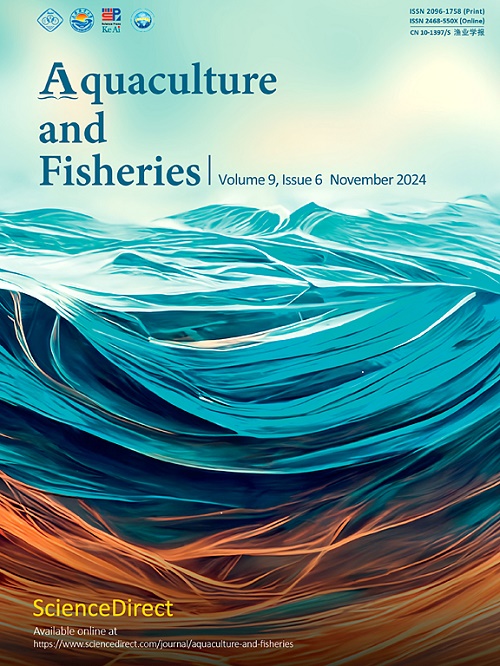Development of marine small-scale fisheries in Togo: An examination of the efficiency of fishermen at the new fishing port of Lomé and the necessity of fisheries co-management
Q1 Agricultural and Biological Sciences
引用次数: 0
Abstract
Small-scale fisheries play a crucial role in providing fish protein for both consumers and coastal communities in Togo. However, the fishermen's revenue is relatively low compared to their expectations. Assessing changes in the technical efficiency is crucial for decision-making, particularly in light of the depletion of natural resources and the need for structural improvements. This study examines the technical efficiency of small-scale fishermen at the new fishing port in Lomé. The primary data were collected through a cross-sectional survey of 82 randomly selected fishermen. The data were analyzed using descriptive method. Subsequently, a Stochastic Frontier Analysis (SFA) was employed to identify the factors contributing to the inefficiency of these small-scale fishermen. The results indicate that only two variables, namely the fishing hours per month and boat ownership (being a skipper), have a statistically significant positive impact on the fishermen's monthly income. The inefficiency model derived from the SFA regression showed that fishery subsidies and cooperative membership positively influence technical efficiency, whereas the duration of fishing trip (number of days at sea and number of trips per month) and boat length negatively influence efficiency. Overall, the results suggest that the government should review fishery subsidy policies to enhance fishermen's technical efficiency while ensuring the sustainability of fisheries. Additionally, we identify another key area for potential policy interventions, which includes promoting and supporting cooperative membership among the fishermen. This could provide social support, an organizational structure for communication, co-management, and collective decision-making.
多哥海洋小规模渔业的发展:对新渔港lomoire渔民效率的考察和渔业共同管理的必要性
小规模渔业在为多哥消费者和沿海社区提供鱼类蛋白方面发挥着至关重要的作用。然而,与渔民的预期相比,他们的收入相对较低。评估技术效率的变化对决策是至关重要的,特别是考虑到自然资源的枯竭和结构改进的需要。本研究考察了lom新渔港小规模渔民的技术效率。主要数据是通过随机选取82名渔民的横断面调查收集的。采用描述性方法对资料进行分析。随后,采用随机前沿分析(SFA)来确定导致这些小规模渔民效率低下的因素。结果表明,只有两个变量,即每月捕鱼时数和拥有船只(船长),对渔民的月收入有统计学上显著的正影响。基于SFA回归的无效率模型表明,渔业补贴和合作成员对技术效率有正向影响,而捕鱼时间(海上天数和每月次数)和船长对效率有负向影响。综上所述,政府应重新审视渔业补贴政策,以提高渔民的技术效率,同时确保渔业的可持续性。此外,我们确定了潜在政策干预的另一个关键领域,其中包括促进和支持渔民之间的合作成员。这可以提供社会支持、沟通、共同管理和集体决策的组织结构。
本文章由计算机程序翻译,如有差异,请以英文原文为准。
求助全文
约1分钟内获得全文
求助全文
来源期刊

Aquaculture and Fisheries
Agricultural and Biological Sciences-Aquatic Science
CiteScore
7.50
自引率
0.00%
发文量
54
审稿时长
48 days
期刊介绍:
 求助内容:
求助内容: 应助结果提醒方式:
应助结果提醒方式:


